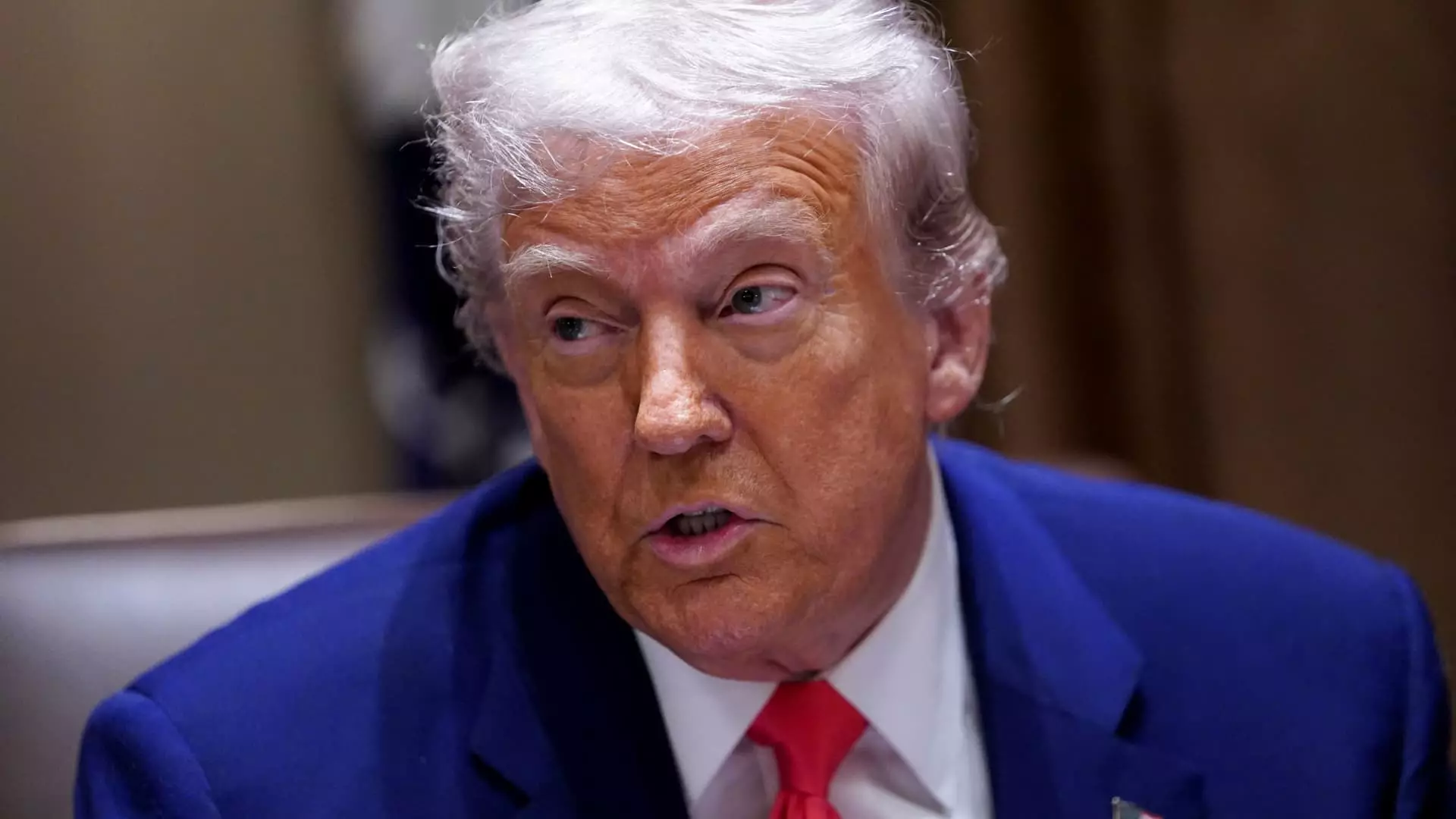In a surprising yet seemingly calculated move, recent developments in U.S. trade policy revealed that smartphones and computers will not be subjected to the massive 145% tariffs imposed by President Donald Trump. This decision, articulated by U.S. Customs and Border Protection, signifies a vital reprieve for major tech corporations, particularly Apple, which relies heavily on Chinese manufacturing for its products. As the frontline of American technological prowess, these companies were facing not just financial implications but existential threats to their operational models.
The overarching narrative in this situation raises critical questions about the administration’s strategy and the fluctuating dynamics of the trade war with China. Initially, the exorbitant tariffs aimed at countering trade imbalances and alleged intellectual property theft threatened to cripple the tech sector. Moreover, this move provides insight into the White House’s willingness to adapt after recognizing the intense backlash from influential stakeholders within big tech.
The Ramifications for Tech Giants
The tariff exemptions are undoubtedly a triumph for corporations such as Apple, which produce around 80% of iPads and over half of their Mac computers in China, according to research by Evercore ISI. This reality delineates a stark difference between idealistic trade policies and pragmatic economic needs. Analysts hailed this decision as a “dream scenario” for tech investors, indicating that the strategic exemptions for smartphones and semiconductors could transform the landscape of the U.S.-China trade relationship.
Despite these concessions, it’s crucial to analyze the broader implications of Trump’s tariff policies and the psychological warfare played on markets. Within days of the tariff announcement, Apple witnessed a staggering drop of over $640 billion in market value. Such volatility not only affects tech giants but also reverberates throughout the entire economy, contributing to an unsettling atmosphere for investors and consumers alike.
Market Dynamics and Investor Sentiment
Wall Street’s reaction elucidates the precarious balance between political statements and corporate realities. An immediate fallout saw the S&P 500 index plummet over 5%, punctuating the trepidation that the business community feels in grappling with uncertainty driven by government policy. This acute anxiety in the market signifies a recognition that political maneuvers can lead to swift and unpredictable outcomes, striking at the heart of economic stability.
As interest rates spike and treasury yields soar, the underlying implication is that a reckoning is at hand. High volatility creates an environment where financial planning becomes nearly impossible for businesses. It forces stakeholders, including investors and consumers, to contemplate their strategies amidst the shifting sands of policy. As Dan Ives from Wedbush Securities observed, the tariffs had cast a “black cloud” over the tech sector for too long. As such, it becomes paramount to ask: what are the systemic consequences of such an erratic approach to trade regulation?
The Role of Corporate Voices in Policy Making
The swift shifts in tariff policy can also be seen as a testament to the power that corporate leaders hold in the current political landscape. The pressures exerted by the CEOs of major corporations to reverse damaging policies reveal a significant truth: when economically viable companies speak, administrations listen. This dynamic illustrates an unsettling reality: the whims of a few can sway the course of economic policy, potentially sidelining the very citizens whose interests these policies are intended to serve.
The decision to provide tariff exclusions isn’t simply a win for corporations; it speaks volumes about the ongoing tug-of-war between protectionist policies and overarching economic realities. The revenue generated from tariffs may appear attractive on the surface, yet the repercussions of such moves can lead to an erosion of trust among consumers and investors alike.
The disarray caused by fluctuating tariffs paints a vivid picture of a government struggling to define its approach in a globalized economy. It is crucial to reflect upon whether these moves serve the greater public interest or merely cater to corporate titans wielding disproportionate influence. As a society, we must seek to hold our leaders accountable, advocating for a policy framework that emphasizes long-term economic stability over short-term gains.


Leave a Reply